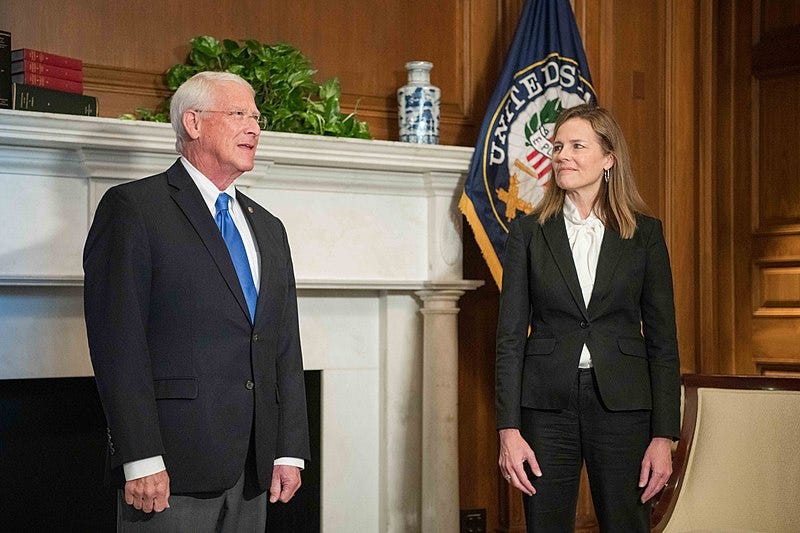The corporate media's attacks get continually less sensible and more petty
The New York Times is upset that a Republican senator made a rare, thoughtful vote on a piece of legislation
The agenda of the corporate media is to carry water for President Joe Biden and his allies in Congress, as I’ve said before, and The New York Times is giving us yet another example of this.
Now it’s possible that Cochrane and Kaplan did not write this self-defeating headline, as it is common that writers do not come up with their own headlines, but it really does encapsulate the gist of their article.
Before the House gave final approval to a $1.9 trillion stimulus package on Wednesday without any Republican support, Speaker Nancy Pelosi admonished Republicans for their opposition to the measure, declaring, “It’s typical that they vote no and take the dough.”
As if to make her point, Senator Roger Wicker, Republican of Mississippi, tweeted approvingly just hours after the bill passed about the $28.6 billion included for “targeted relief” for restaurants. His post did not mention that he had voted no.
They later quote Senator Wicker as stating, “I’m not going to vote for $1.9 trillion just because it has a couple of good provisions.” In other words, as Wicker explicitly states and as their own headline makes clear, Wicker decided that despite the fact that the bill had provisions that he supports, such as direct aid to “independent restaurant operators,” he couldn’t justify voting in favor of the bill because it had more provisions that he either disliked or couldn’t verify one way or the other in the time that he had to review the bill before it came up for a vote.
This phenomenon is known as making tradeoffs, and most rational, discerning adults are forced to do this endlessly throughout their lives. It is, in fact, largely considered a virtue and a sign of maturity that one is able to do this without whining that you can’t have everything in life go your way.
Here’s a hypothetical example of a tradeoff to further make the point: Perhaps there’s a person out there who really wants to take their family to Disney World, but a consequence of taking their family to Disney World would be that they are not able to make their mortgage payment for the month. The responsible person would make the tradeoff that they do not take their family to Disney World because making their mortgage payment and keeping their home is more important than it is to go on vacation.
Let’s take this scenario one step further and say that maybe someone decides that they would like to pay for that family to go to Disney World for some reason, and the person who could not originally afford to take their family to Disney World expresses their happiness that their family is able to take this vacation after all. The New York Times, Emily Cochrane, and Thomas Kaplan, if they are logically consistent, would then have to condemn this person as a hypocrite who obviously hates Disney World and probably their family because they were not willing themselves to spend the money to go on vacation.
Whether or not you agree with Senator Wicker’s choice to vote against the bill, or his support for a particular provision of the bill, is irrelevant to the point that he actually took a thoughtful position on the bill in line with his professed principles on the subject. He voted against the bill because he disagreed with it in general, but he’s still happy that people will presumably benefit from a provision of the bill that he did support.
If The New York Times really doesn’t like the fact that rational people can support parts of legislation and not support other parts, then they should take it up with Congressional leadership, currently Democrats, who put up trillion dollar omnibus bills that cover too many different topics and refuse to allow non-ranking members of Congress to offer amendments to legislation. That, however, would be another example of making a tradeoff, and they’re too childish to do that so they’ll just go after the people who can instead.






